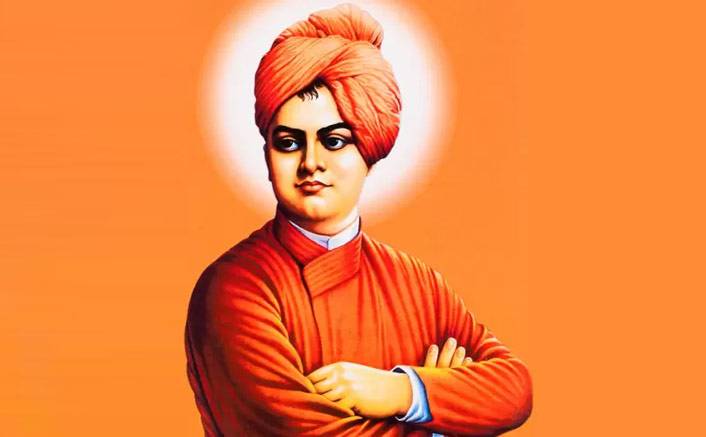Swami Vivekananda’s philosophy is a profound blend of Vedanta, practical spirituality, and universalism, rooted in ancient Indian wisdom but adapted to inspire modern individuals, including students. His teachings emphasize self-realization, universal harmony, service to humanity, and the unity of all existence. Below is a concise yet comprehensive explanation of his philosophy, tailored to resonate with students and grounded in his core ideas.
1. Self-Realization and Inner Strength
- Core Idea: Vivekananda taught that every individual is divine, with infinite potential already within them. The purpose of life is to realize this divinity through self-discovery and personal growth.
- Key Principle: “Each soul is potentially divine. The goal is to manifest this divinity within by controlling nature, external and internal.”
- Relevance for Students: Believe in your inherent strength and potential. Challenges are opportunities to uncover your inner power. Instead of doubting yourself, focus on self-discipline and self-awareness to unlock your capabilities.
2. Education as Self-Unfoldment
- Core Idea: Vivekananda redefined education as the “manifestation of perfection already in man.” True education is not just acquiring information but developing character, concentration, and wisdom.
- Key Principle: “We want that education by which character is formed, strength of mind is increased, the intellect is expanded, and by which one can stand on one’s own feet.”
- Relevance for Students: Focus on holistic growth—mental, emotional, and spiritual. Education should empower you to think critically, act confidently, and contribute meaningfully to society.
3. Fearlessness and Self-Confidence
- Core Idea: Fear and self-doubt are the greatest obstacles to success. Vivekananda urged individuals to cultivate fearlessness and unwavering belief in themselves.
- Key Principle: “The greatest sin is to think yourself weak. Stand up, be bold, be strong.”
- Relevance for Students: Overcome insecurities and societal pressures. Trust your abilities, take risks, and face failures as learning experiences.
4. Practical Vedanta
- Core Idea: Vivekananda brought the ancient philosophy of Vedanta into practical life, emphasizing that spirituality is not about renunciation alone but living actively with purpose and service.
- Key Principle: “The Vedanta teaches that Nirvana can be attained here and now, that we do not have to wait for death to reach it.”
- Relevance for Students: Apply spiritual values like truth, compassion, and discipline in daily life. Balance ambition with humility to lead a meaningful life.
5. Service to Humanity as Worship
- Core Idea: Vivekananda saw service to others, especially the poor and suffering, as a form of worship. He believed in “Jiva is Shiva” (the soul is divine), meaning serving humanity is serving God.
- Key Principle: “They alone live who live for others; the rest are more dead than alive.”
- Relevance for Students: Contribute to society through small acts of kindness and selfless service. Your success is meaningful when it uplifts others.
6. Unity of All Religions
- Core Idea: Vivekananda promoted universalism, teaching that all religions lead to the same truth. He emphasized tolerance and respect for all faiths.
- Key Principle: “We believe not only in universal toleration, but we accept all religions as true.”
- Relevance for Students: Embrace diversity and learn from different perspectives. Unity in diversity fosters harmony and broadens your worldview.
7. Focus and Concentration
- Core Idea: Vivekananda stressed the importance of mental discipline and concentration as the foundation of success in any field.
- Key Principle: “The powers of the mind are like the rays of the sun—when they are concentrated, they illumine.”
- Relevance for Students: Cultivate focus to excel in studies and life. Avoid distractions and dedicate yourself fully to your goals.
8. Action and Perseverance
- Core Idea: Vivekananda advocated for relentless effort and perseverance in the face of challenges. He believed in Karma Yoga, the path of selfless action.
- Key Principle: “Arise, awake, and stop not till the goal is reached.”
- Relevance for Students: Stay committed to your dreams, work hard, and don’t give up despite setbacks.
9. Harmony of Body, Mind, and Soul
- Core Idea: Vivekananda emphasized a balanced life, where physical health, mental clarity, and spiritual growth are equally important.
- Key Principle: “You must keep a strict eye on your health; let everything else be subordinate to that.”
- Relevance for Students: Maintain physical fitness, mental sharpness, and inner peace to perform at your best.
10. Freedom and Individuality
- Core Idea: True freedom comes from realizing your inner divinity and living authentically, unbound by fear or societal constraints.
- Key Principle: “Dare to be free, dare to go as far as your thought leads, and dare to carry that out in your life.”
- Relevance for Students: Be true to yourself, pursue your passions, and don’t conform blindly to external expectations.
Broader Context and Impact
Vivekananda’s philosophy integrates the spiritual depth of Advaita Vedanta (non-dualism) with practical guidance for living a purposeful life. He introduced Indian spirituality to the West during his famous 1893 speech at the Parliament of the World’s Religions in Chicago, emphasizing universal brotherhood and self-reliance. His teachings inspired movements for education, social reform, and youth empowerment in India and beyond, through organizations like the Ramakrishna Mission.
For students, Vivekananda’s philosophy is a call to action: to discover their inner potential, pursue knowledge with purpose, serve others selflessly, and live fearlessly. His emphasis on character-building, resilience, and universal values makes his teachings timeless and universally applicable.
If you’d like a deeper dive into any specific aspect of his philosophy or its application for students, let me know!

